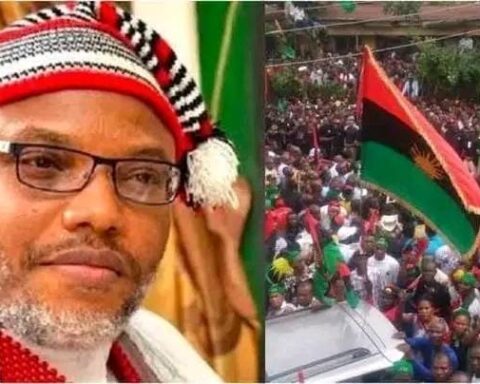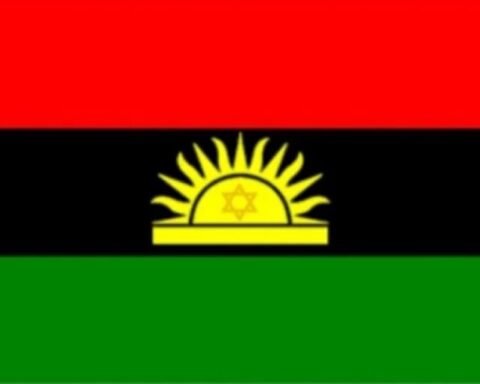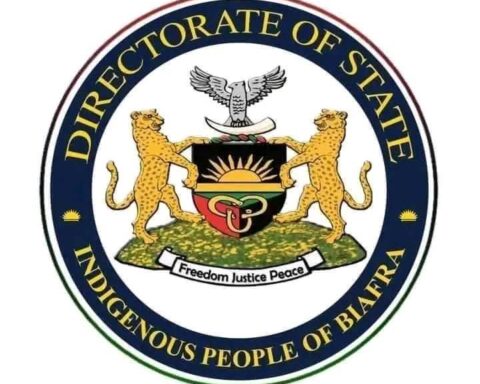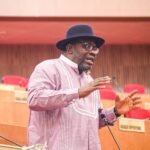By Ademola Tijani
The proposed mass rally against the administration of President Bola Ahmed Tinubu eventually kicked off yesterday, Thursday, August 1, 2024.
According to media reports, the protest took place in 16 States, including Lagos, Abuja, Kano, and Rivers States, with reports of violence in Kano, Kaduna, Katsina, Jigawa, Borno, Niger and Yobe States, among others.
In Lagos State, the action took place in some notable areas.
However, Daily Query covered some areas to observe the nature of the protest. At the popular Mile 2 transport hub, Amuwo Odofin LGA, commercial activities were completely grounded. But the protest in the area was marked by significant participation from local residents, reflecting the widespread dissatisfaction with current government policies and social issues.
The demonstration began early in the morning, with protesters gathering at strategic points around the Mile 2 area, a key transport hub in Lagos.
Protesters, armed with placards and banners, chanted slogans calling for justice, economic reforms and an end to police brutality. The mood was initially peaceful, with participants emphasizing the need for nonviolent protest. They voiced their grievances against issues such as rising unemployment, inflation, and systemic corruption.
As the day progressed, the number of demonstrators increased, and the protest gained momentum. The heavy traffic in the Mile 2 area came to a standstill as protesters blocked major roads, disrupting the flow of vehicles and drawing more attention to their cause. The disruption led to some frustration among commuters, but most expressed solidarity with the protesters’ demands.
“We are tired of this, everything is scarce now,” a middle age man fumed.
Similarly, the first day of protests at Ojota, Lagos, witnessed a large turnout as residents and activists gathered to voice their dissatisfaction with the government.
The demonstrations were fueled by concerns over economic hardship, police brutality, and systemic corruption.
At the popular Gani Fawehinmi Freedom Park, Ojota, protesters assembled for the public demonstrations in obedience to the court order confining them to designated places. Daily Query witnessed that the crowd grew steadily, with participants holding banners and placards bearing slogans that called for justice, transparency, and significant reforms.
The atmosphere was charged but peaceful as protesters chanted and sang, united in their demand for change. Organizers emphasized the importance of maintaining a nonviolent stance, urging demonstrators to focus on their message without resorting to aggression.
Security forces, including the police and other law enforcement agencies, were present in large numbers to monitor the situation and ensure public safety. The initial interactions between protesters and security personnel were calm, with both sides showing restraint.
As the protest continued, the crowd swelled, drawing attention from passersby and local media. Traffic around the Ojota area was largely disrupted, with major roads blocked by the sheer number of demonstrators. Commuters faced delays, but many expressed solidarity with the protesters’ objectives.
Despite the largely peaceful nature of the protests, there were moments of tension. Around midday, a small group of agitators attempted to provoke the security forces by throwing stones and other objects. The police responded with tear gas to disperse the unruly elements, leading to brief chaos. Some arrests were made, and there were reports of minor injuries among both protesters and police officers.
Local leaders and activists quickly intervened, urging the crowd to remain peaceful and not allow a few individuals to undermine the demonstration’s goals. They reiterated their call for the government to address the protesters’ demands and engage in meaningful dialogue.
Throughout the day, several public officials and community leaders issued statements. Some condemned the protests, while others expressed support for the demonstrators’ right to protest peacefully and called for a constructive response from the government.
As evening approached, the protest began to wind down, with many participants dispersing voluntarily. However, a heavy police presence remained to ensure that the situation did not escalate further. The first day of protests at Ojota highlighted the deep-seated frustrations of the people and underscored the urgent need for government action.
The events at Ojota are a reflection of the broader national sentiment, with calls for continued peaceful demonstrations and an insistence that the government listen to the people’s grievances. The residents of Ojota, like many across Lagos and Nigeria, remain committed to advocating for justice and meaningful reform



























